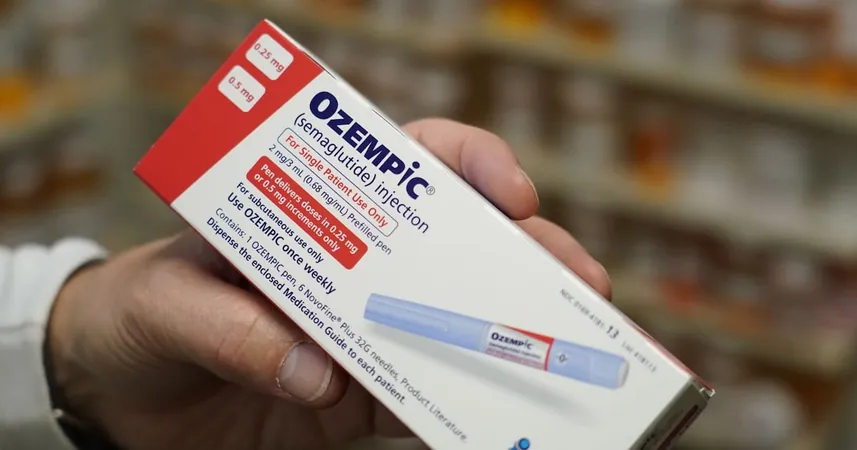
Breakthrough Study Reveals Ozempic's Surprising Role in Reducing Opioid Overdose Risks!
2024-09-25
Groundbreaking Findings
In a groundbreaking study published in JAMA Network Open, researchers have found that individuals with a history of opioid abuse who were treated with Novo Nordisk's Ozempic experienced a significantly lower risk of overdose. The research adds to an emerging narrative that this diabetes medication may not only assist in managing diabetes and weight loss but also provide unexpected benefits in curbing addiction.
Key Study Results
The study indicated that patients administered semaglutide, the active ingredient in Ozempic and the weight-loss drug Wegovy, were less than half as likely to suffer an overdose compared to those receiving insulin. Moreover, participants who took semaglutide exhibited a staggering 63% reduction in overdose incidents compared to those on DPP-4 inhibitors, a common class of diabetes medication.
Research Leadership
Led by Rong Xu, a professor of biomedical informatics at Case Western Reserve University, the study builds on previous findings that linked semaglutide to reduced rates of alcohol use disorder and smoking cessation. This new research marks the first extensive analysis focused on opioid overdose risks among similar patient demographics.
Broader Implications
As the popularity of innovative weight-loss medications rises, the medical community is increasingly curious about their potential to diminish cravings for other addictive substances, not just appetite. While pharmaceutical companies have been cautious to explore this intersection of obesity treatment and addiction management, Novo Nordisk is already examining the impacts of their medication on alcohol consumption in a trial that commenced this year.
Study Methodology
To conduct the study, researchers utilized medical records to construct a patient database, tracking individuals with opioid use disorder and type 2 diabetes over one year for any overdose-related medical interventions. Approximately two-thirds of the participants also struggled with obesity, further emphasizing the intersection of these health issues.
Consistency of Results
The promising results with semaglutide were consistent across various diabetes drug classes, with one notable exception: Eli Lilly & Company’s Trulicity. Moreover, researchers did not include comparisons with Lilly’s latest diabetes medication, Mounjaro, in their analysis.
Future Perspectives
These findings could reshape how we view medications like Ozempic, hinting at broader applications in addiction treatment. As the healthcare landscape evolves, could this be the dawn of dual-action therapies that target both metabolic and addictive disorders? Stay tuned as we explore this intriguing intersection further—the implications could be immense!









 Brasil (PT)
Brasil (PT)
 Canada (EN)
Canada (EN)
 Chile (ES)
Chile (ES)
 España (ES)
España (ES)
 France (FR)
France (FR)
 Hong Kong (EN)
Hong Kong (EN)
 Italia (IT)
Italia (IT)
 日本 (JA)
日本 (JA)
 Magyarország (HU)
Magyarország (HU)
 Norge (NO)
Norge (NO)
 Polska (PL)
Polska (PL)
 Schweiz (DE)
Schweiz (DE)
 Singapore (EN)
Singapore (EN)
 Sverige (SV)
Sverige (SV)
 Suomi (FI)
Suomi (FI)
 Türkiye (TR)
Türkiye (TR)